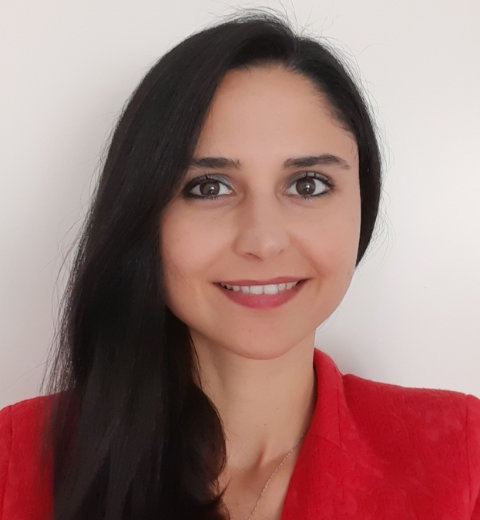Interview with curator and journalist Yasemin Elçi
In a few days, the shortlist of the LOBA 2021 will be published. All candidates in the main category and the Newcomer Award will also be presented in more detail on the LOBA website in the coming months.
The jury selection was made from the proposals of around 100 nominators. Today, in our series of interviews with some of the nominators, curator and journalist Yasemin Elçi talks about her ideas and experiences.
You managed the Leica Gallery Istanbul - what role or relationship do you have with Leica beyond that?
My relationship with Leica began when I was at university. My photography professor at Dartmouth College (USA), Brian Miller, encouraged me to apply for an art grant for my upcoming photography exhibition, and I managed to get it. With the grant, I bought a Leica camera and covered the production costs of my first exhibition that took place on the school campus. I still have my camera from 2006: it's a Leica D-lux 2, but I also had an analogue camera. So, I’ve had an emotional tie with the brand since the beginning of my photographic journey. Therefore, I was very happy to curate Leica Gallery Istanbul since its launch. Between 2016 and 2019 I really enjoyed working with international photographers and collaborating with other Leica Galleries around the world.
Can you give us an insight into how you proceeded in selecting your proposals for LOBA, especially from your perspective as a freelance curator?
I selected artists who can create a unique visual language, while telling an overlooked or under-represented story from their own perspective. I was also careful to present a diverse selection in terms of gender and geography. Each photographer is based in a different part of the world and explores pressing issues in their surroundings, that also impact them personally.
“I would like LOBA to become an international exhibition that travels to various galleries and institutions around the world, expanding the Leica network.”
What would you advise young photographers to do in order to become visible for support?
I would advise them to concentrate on their artist statement as much as they do on their visual language. Writing is a powerful way to gather dispersed thoughts and organise them in a meaningful way; not just for others to read but for the artists to get to know themselves better. Through this process, they can set both short and long-term goals and clarify the connections with names from art history that may have influenced them. I think young photographers should not only follow photography-related productions, but should also continuously explore exhibitions and publications in other disciplines, such as painting, sculpture, video works. In the long term, they can benefit from a multi-disciplinary visual archive that they aggregate in their mind, and they can take more confident steps while exploring uncharted territories. They should also proactively approach curators, artists and gallerists who they are interested in working with. Finally, they should not be afraid to request feedback from people whose opinion they value; but I think they should always make the final decisions based on their own judgement and instincts.
Could you please tell us how you would like the LOBA to be exhibited in the future?
I would like LOBA to become an international exhibition that travels to various galleries and institutions around the world, expanding the Leica network, connecting with different audiences, and displaying works from diverse artists.
Has a photographic initiative, a book project, or a group of artists stood out for you recently, that you would like to highlight?
Before the pandemic I started following “Everyday Projects” (www.everydayprojects.org) more closely. It's a non-profit organisation that aims to discover local voices and create a more equal storytelling structure. Their growing network of global communities continues to challenge stereotypes and misconceptions, and to replace them with multi-dimensional and inclusive visual languages.
Thank you very much for your time.

Yasemin Elçi
After graduating from Dartmouth College (NH, USA), Yasemin Elçi started working at art galleries in Istanbul. She worked at Gallery x-ist with contemporary Turkish artists for seven years. Between 2016-2019 she curated and managed the Leica Gallery Istanbul, exhibiting works by internationally acclaimed photographers as well as emerging artists from various countries. She currently lives between Luxembourg and Istanbul and works as a freelance journalist and curator.